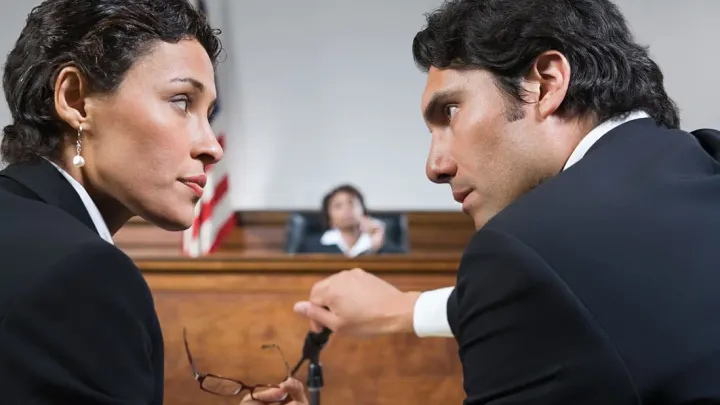25 Defense Attorney Misconduct Examples
The legal profession demands high ethical standards. A defense attorney, like any lawyer, has a duty to adhere to a code of professional conduct. However, misconduct does occur and can profoundly impact a case. This blog post examines defense attorney misconduct examples, its potential effects, and what can be done in such situations.
What is Defense Attorney Misconduct?
Attorney misconduct involves unethical or illegal actions by an attorney that harm the administration of justice. In the context of a defense attorney, misconduct can severely prejudice a defendant’s right to a fair trial.

25 Defense Attorney Misconduct Examples
Here, we will delve into some examples of defense attorney misconduct, highlighting each instance’s seriousness.
- Concealment of Evidence: If a defense attorney intentionally conceals evidence, it disrupts the court’s ability to establish truth and fairness.
- Abuse of Discovery Process: Misuse of discovery, such as hiding evidence or failing to disclose relevant information, compromises the fairness of proceedings.
- Tampering with Witnesses: If an attorney influences or coerces witnesses to provide false testimony, it can alter the course of justice.
- Incompetence: Lack of knowledge or skill can lead to serious mistakes that negatively affect a client’s case.
- Delay Tactics: Unnecessarily prolonging a case can cause undue emotional and financial stress to all involved parties.
- Excessive Billing: Overcharging clients is unethical and can put unnecessary financial strain on clients.
- Failure to Communicate with Client: Neglecting to keep the client informed can prevent them from making informed decisions about their case.
- Fraternization with Opposing Counsel: Overly friendly relationships can lead to conflicts of interest or perceptions of bias.
- Harassment or Intimidation: Using threatening tactics to manipulate proceedings can intimidate clients, witnesses, or opposing counsel.
- Influence Peddling: Offering or accepting bribes to manipulate the course of justice is a severe ethical violation.
- Failure to Perform Due Diligence: Negligence in researching and preparing for a case can detrimentally impact a client’s defense.
- Misappropriation of Client Funds: Stealing or misusing client funds is a severe breach of trust and professional duty.
- Violating Attorney-Client Privilege: Disclosing confidential information can damage a client’s case and breach trust.
- Lack of Preparation: Failing to adequately prepare for a case can lead to a weaker defense and a negative outcome for the client.
- Misleading Clients: If a lawyer deliberately misleads a client about their case, it can result in unjust outcomes.
- Abuse of Court Procedures: Manipulating court procedures for personal gain or to harm the client is unethical and harms the administration of justice.
- Disrespecting Court Officials: Showing disrespect to court officials can harm the attorney’s reputation and potentially affect the client’s case.
- Failure to Follow Court Orders: Ignoring or defying court orders undermines the court’s authority and can lead to sanctions.
- Unauthorized Practice of Law: Practicing law without proper licensing or in jurisdictions where the attorney is not admitted to practice is a severe breach of professional rules.
- Conflict of Interest with Judge or Prosecution: Any relationship that could influence the impartiality of the proceedings compromises the fairness of the trial.
- Making False Statements in Court: Deliberately lying in court can mislead the judge or jury, leading to unjust outcomes.
- Violating Rules of Evidence: Ignoring these rules can lead to improper evidence being considered, which can unfairly influence a case’s outcome.
- Providing Legal Advice on Matters Outside Expertise: Offering advice on unfamiliar legal areas can lead to misinformation and potential harm to the client’s case.
- Failure to Pursue Client’s Best Interests: This undermines the fundamental role of an attorney and can cause serious harm to the client’s case.
- Practicing While Under the Influence: Substance abuse can affect an attorney’s judgment and performance, which can negatively impact a client’s case.
Consequences of Misconduct
Defense attorney misconduct can have far-reaching effects, including a mistrial, reversal of a conviction, or disciplinary action against the attorney, such as disbarment or suspension.
Addressing Defense Attorney Misconduct
If you believe your defense attorney engaged in misconduct, you should consult with another attorney or a legal ethics professional. They can guide you on filing a complaint with the state bar association, which typically investigates such matters.
People Also Ask
Can You Sue a Lawyer for Misconduct?
Yes, you can sue a lawyer for professional negligence or malpractice if their misconduct has directly harmed you or your case.
What is the Punishment for Attorney Misconduct?
The punishment for attorney misconduct varies based on the severity of the misconduct. It could range from a reprimand or fine to disbarment.
What Do I Do If I Can’t Afford a New Attorney?
Legal aid services, pro bono work by lawyers, and court-appointed attorneys can be alternatives if you cannot afford a new attorney.
Conclusion
Defense attorney misconduct disrupts the justice system and can significantly influence the outcome of cases. Understanding and recognizing these behaviors are crucial for maintaining trust in legal proceedings and ensuring fair trials.
More links:
- 29 Examples of Teacher Misconduct
- 26 Examples of Gross Misconduct
- 40 Examples of Executor Misconduct
- 10 Judicial Misconduct Examples